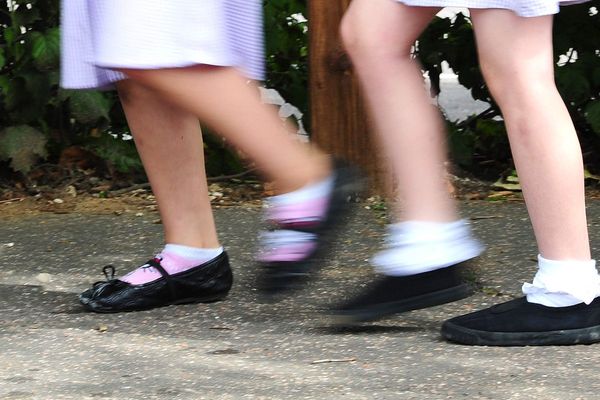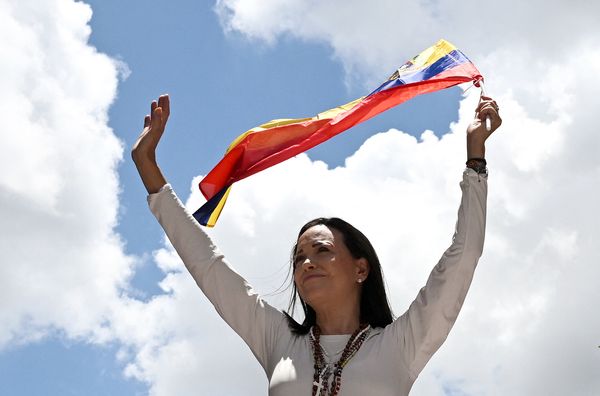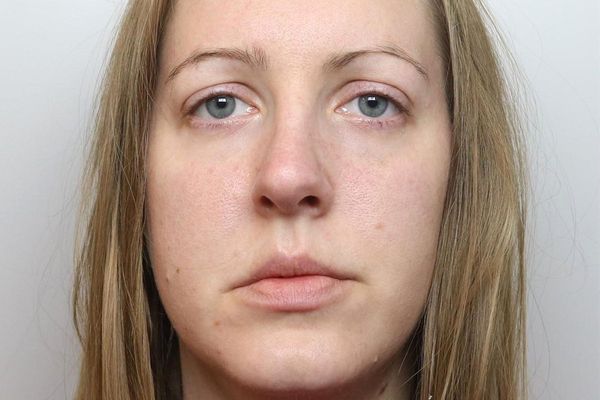
This article is an instalment in a new series, Punted, on the government’s failure to reform gambling advertising.
Peter Dutton’s modest proposal to further restrict gambling advertising on television during live sporting broadcasts was perhaps the most interesting policy thought bubble of his debut budget reply speech last year.
But it’s been crickets from Dutton and his Coalition colleagues ever since. Until the weekend, that is, when Labor’s mooted set of half-baked regulatory changes were leaked to the Nine papers. Dutton joined the pile-on on the Albanese government, which has seemingly baulked at embracing the popular proposal to implement a tobacco-style advertising ban on an industry that takes $25 billion from Australians each year.
Labor had been given a blueprint for reducing gambling harm in the form of the 31 recommendations of the parliamentary inquiry into online gambling headed by the late Peta Murphy MP. It found there was an “inescapable torrent” of gambling advertising. The three-year, phased-in ban on all gambling advertising is supported by an estimated 70% of Australians, but the government has sat on the recommendations for more than 12 months.
During this time, there is evidence of a furious lobbying effort by the gambling industry, the sporting codes and big media companies — particularly free-to-air television broadcasters, which last year formally submitted opposition to any regulatory changes.
How did we get here?
As Crikey has noted, Labor governments over the years have been responsible for the majority of policy decisions leading to Australians being the world’s biggest per capita gamblers.
In terms of sports gambling advertising, the 2008 High Court decision in Betfair vs Western Australia opened the door for national advertising campaigns by largely foreign-owned bookmakers. The Northern Territory soon became the unfettered flag of convenience for foreign bookmakers by issuing dozens of licenses to seemingly anyone who asked. In 2014, James Packer’s Crown Resorts bought the 50% of Betfair’s Australian business that it didn’t already own, solidifying the connection between Australia’s traditional media moguls and the largely UK-based online bookmakers.
Apart from the failed “siren to siren” ban imposed by ACMA and then Coalition communications minister Mitch Fifield in 2018 — which aimed to ban sports betting advertising during live games — there has been no meaningful federal attempt to stem the deluge of gambling advertising. You get the occasional voluntary move, such as Geelong Football Club banning gambling ads at its Kardinia Park home games in 2019, but these are few and far between.
Gambling advertising on television has almost doubled since 2018 and is still running at more than $300 million a year. Meanwhile the Dublin-based Sportsbet is now fleecing $2.2 billion a year from its 1 million-plus Australian customers.
Murdochs and Stokes
Multiple media companies have attempted to muscle in on Australia’s gambling giggle, most notably when Rich Lister Matthew Tripp teamed up with News Corp for the failed Betr venture, which cost the media giant an estimated $70 million before it walked away in 2023.
The Betr foray wasn’t the first time the Murdochs had directly entered the gambling industry. During the period they controlled BSkyB in the UK, it made an estimated $2 billion profit from launching, building and then selling Sky Betting and Gaming, as Crikey noted. The Murdochs tried to repeat the move in the US by establishing Fox Bet in 2019, a 50-50 joint venture with Flutter Entertainment, the owner of Sportsbet. It floundered and was closed in August 2023.
The biggest political obstacle to a ban on gambling advertising on television is the perceived power of Rupert Murdoch and his fellow Australian media oligarch, Kerry Stokes. Together they enjoy more than $150 million per year of gambling advertising revenue across their respective Australian media empires.
The political risk of an advertising ban is evident in the AFL’s latest broadcast deals with Seven (Stokes) and Foxtel (Murdoch). If the government moves to impose a ban, the loss of revenue will fall squarely on the media companies. Foxtel and Seven have together agreed to pay $4.5 billion for the AFL rights between 2025 and 2031, which presumably encourages them to lobby even harder to prevent any meaningful change.
News Corp shares hit a record high in recent weeks, so the billion-dollar company can comfortably absorb a full gambling advertising ban starting in 2027. The same can’t be said for Seven West Media, however, given its share price is wallowing at just 17c after the recent loss of its Facebook contract and series of other missteps.
The entire company is capitalised at just $277 million and the 40.2% stake held by industrial services giant Seven Group Holdings is only worth $111 million. However, this isn’t really a worry for proprietor Kerry Stokes, whose 50.93% stake in Seven Group Holdings is currently worth $7.4 billion after its recent takeover of concrete giant Boral. (If Stokes wanted to privatise Seven West Media, it would cost him around $500 million, including debt, but he hasn’t put a dollar into his media interests for over a decade and appears to enjoy the political power it brings without paying any more for it.)
Stokes and Murdoch can afford to take the hit from any Australian gambling advertising ban. Rather than waiting for more pressure from the teals and the Greens, Anthony Albanese should just get with the program.
Anyone affected by problem gambling can get immediate assistance by calling the National Gambling Helpline on 1800 858 858 for free, professional and confidential support 24 hours a day, seven days a week.
Should the government introduce a blanket ban on gambling advertising? Let us know your thoughts by writing to letters@crikey.com.au. Please include your full name to be considered for publication. We reserve the right to edit for length and clarity.







